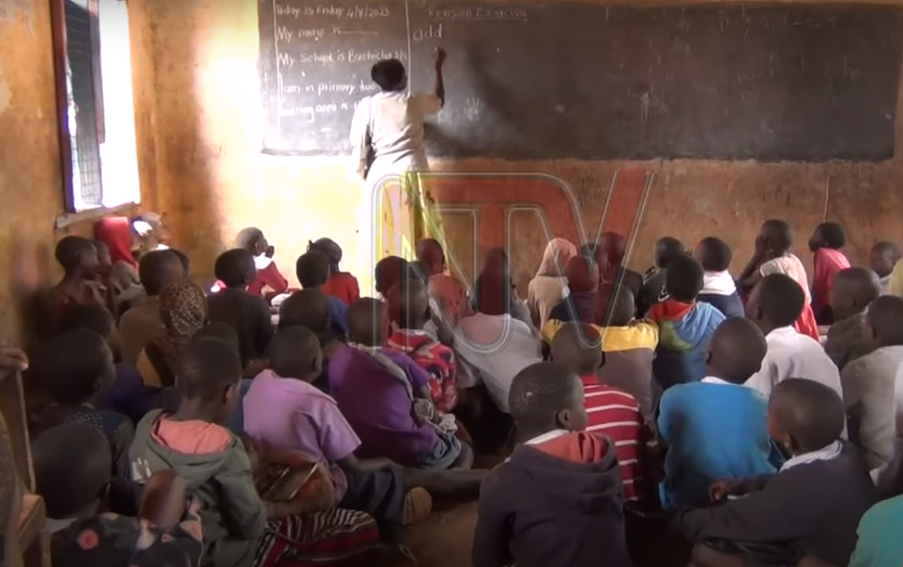Crisis looms at Douglas Villa quarantine centre

Douglas Villa Hostel in Makerere Kikoni in Kampala is one of the quarantine centres for suspected cases of coronavirus. Photo by Stephen Otage
There is looming fear of mass infections of Covid-19 at Douglas Villa at Kikoni, Makerere-West unless the Ministry of Health addresses congestion and mixing up of the quarantined people.
Inside sources say the situation is scary with people under quarantine mixing up and without proper sanitation.
Until the outbreak, Douglas Villa was a hostel of Makerere University students. However, after education institutions were closed due to the coronavirus pandemic, it was turned into a quarantine centre.
Since the first case was reported, government sent out messages to those who had travelled from Dubai and other countries to report for testing.
However, those who responded to the call and were taken there now say they may end up getting infected.
Lennon Mugisa who had travelled to Dubai on March 18 and came back four days later said he reported to the new Mulago Hospital where they had asked the travelers to go but he was surprised after reaching there to be put under quarantine without taking samples from him as the ministry had told him.
“After four hours of waiting up to about 8pm, a man from the Ministry of Health came and told us that we were going to be quarantined and we were put in a van and driven to Douglas Villa,” MrMugisa said.
Now Mugisa says he fears for his life because the place is not safe.
Fears
“The rooms we are sleeping for students, together with their property. We are sharing washrooms, the corridors are small so we mix with each other,” Mugisha said.
A source, who preferred anonymity, said they were picked from Entebbe Airport and taken to Katomi Hotel in Garuga, mixed with people who she suspects later tested positive.
She says when they were taken to the hostel, they were mixed together with people who were sneezing and coughing, raising fear that they would end up being infected.
Another source said they are forced to share sanitary facilities which expose those who are not sick to the risk of contracting the virus.
“Each one of us has been assigned a room but we are sharing one toilet on our floor. The toilets are not even cleaned regularly and there is no toilet paper. People are not observing the rules at all. I always see them moving in corridors sneezing and coughing and social distancing is not observed at all. I am worried,” he said.
The source also said since they were taken there, they have never been tested and wonders why the ministry officials keep them in such a state.
“Only those that are showing signs like coughing and have flu are given attention. I thought all of us should be tested because the pressure is too much. We do not know if we shall leave here alive because you cannot differentiate between the one who has and the one who does not,” he said.
The Ministry of Health, however, said they are aware of the crisis and promised to address the problem.
Dr Joyce Moriku Kaducu, the State Minister for Primary healthcare, said the issue has already been raised to the ministry and steps will be taken to address the concerns.
“Of course the issue of food can be regulated meaning the social distance can be addressed but then the concern of sharing facilities such as toilets and bathrooms, the Permanent Secretary said she was going to address it,” Ms Kaducu said.
“I am just coming back from Adjumani because of the case there and I am not sure if it has been addressed or not. If it has not been addressed, that is very unfair because the spirit of quarantine is that you be on your own. You use your own facilities, you don’t need to mix up. We have to put preventive measures so that they don’t get infected from the quarantine centres,” she added.
Dr Kaducu said since they meet regularly, she will raise the issue to ensure those in quarantine who are not infected don’t get the disease from their infected colleagues.
Key conditions for Quarantine
• Primary caregiver is available to provide necessary care that the patient is unable to provide for their self as well as help monitor the person’s condition.
• Household members not providing care can be relocated. If relocation of household members is not possible, their contact with the patient should be minimised.
• Persons at risk of serious complications should not have contact with the patient.
• Telephone is available.
• A separate bedroom, including floor-to-ceiling walls and a door, is available.
• A separate bedroom is available for each patient, including floor-to-ceiling walls and a door, is available.
• Accommodations are available for staff.
Planning for isolation or quarantine
Availability of support services and supplies:
Key supplies and services for non-hospital management of cases and contacts include:
• Surgical masks for the patient to wear,
• Food and water
• Daily cleaning of patient’s room and bathroom, as well as any bodily fluids spilled during the day
• Medicines and medical consultations
• Mental health and psychological support services
• Other supportive services, i.e. day care, etc.
• Transportation to medical treatment, if required
• Patient education regarding ways to reduce the risk of disease transmission, including wearing of surgical masks when caregivers are present, hand hygiene, remaining in their room
• Food and water
• Daily cleaning of patient’s room and bathroom, as well as any bodily fluids spilled during the day
• Medicines and medical consultations
• Mental health and psychological support services
•Other supportive services, i.e. day care, etc.
• Transportation to medical treatment, if required
•Patients have a TV, radio, etc.
• Adequate care and services for family members in the event that the isolated person is a head of household.
Management of contacts of COVID-19 cases
• Be vigilant for fever (i.e., measure temperature twice daily) or respiratory symptoms for a 10-day period after exposure.
• Seek healthcare evaluation immediately if they develop symptoms.
• Inform a healthcare provider in advance of presenting at a healthcare facility that they may have been exposed to SARS.
Reported by Franklin Draku, Damalie Mukhaye & Kelvin Atuhaire




